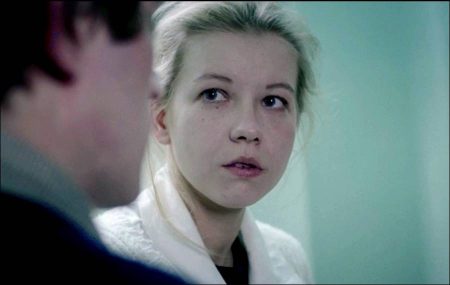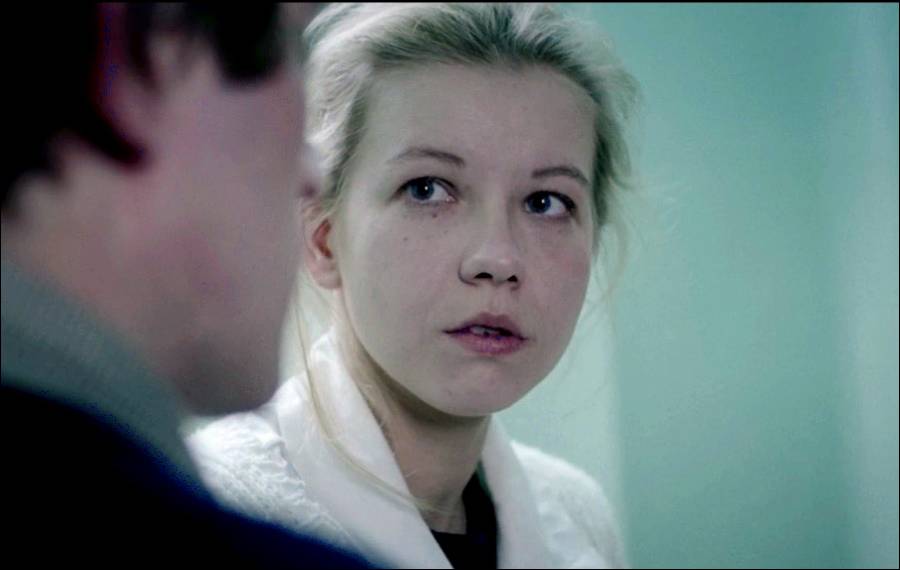The Constant Factor movie storyline. The main character in this effective, convincing drama is Witold (Tadeusz Bradecki) who is high in what later would be termed the “emotional quotient” or the ability to bounce back from adverse, tragic circumstances. Witold has been nursing both his sick mother and a deeply rooted desire to climb the Himalayas. His father had died climbing in those mountains, and they have an allure for Witold as well. But his dreams begin to crumble when his mother succumbs to her illness and trouble brews at work. The situation becomes bad enough to scramble Witold’s life with no indication of future improvement.
The Constant Factor (Polish: Constans) is a 1980 Polish film directed by Krzysztof Zanussi. It tells the story of a young man struggling to face the death of his mother and harbouring a desire to climb the Himalayas as his father had done. The film won the Jury Prize and the Prize of the Ecumenical Jury at the 1980 Cannes Film Festival.
Film Review for The Constant Factor
In Chen Kaige’s great movie Yellow Earth / Huang tu di (1985), a Chinese soldier reaches a remote valley in search of folk songs to record for the edification of the Red Army. At a wedding feast he discusses with his host the spectacle of a poor minstrel singing for tips. The minstrel is lonely and past finding a wife. In the culture he lives in, if you are single after 30, you remain so. So he sings a bitter song, and because of this he earns no money, despite his manifest talent, because the people want to hear happy songs.
So Krzysztof Zanussi’s movie Constans, whilst excellent, probably comes off as a bitter song, one which film fans have therefore been chary of. It’s the story of a young man, Witold, blessed with good looks, intelligence, a moral character, and a sense of wonder and enthusiasm, who is born into a living space, a zeitgeist, and a power structure, which degrades and humiliates him. One might say with some justification that the Second World War ended for Poland only in 1990, with the triumph of Solidarity and consequently the waning of Soviet influence. In 1980, Zanussi let loose this wail; by the following year Solidarity had formed. The Poles had had enough.
It has always mattered the most to me if a film has a ring of truth to it, and so this one does. I was brought up by people espousing a moral system that receives broad lip service, but in practical terms is almost an irrelevance, with people acting only with enlightened self-interest. I suppose with a Catholic country under a communist regime you might get similarly schizophrenia-inducing conditions for people who pay heed to principle.
As with Kieslowski, Zanussi was fascinated by fate and that comes through very clearly here. Kieslowski’s movie of the following year, Blind Chance (1981) being equally as despondent. In the depths of the pessimism of Constans I was reminded of the Socratic concept of divine fatalism, the idea that good character is a divine boon and that we are the playthings of the gods. Witold’s planned ascent of Himalayan peaks, is allegorical and for me harks back to the myth of Bellerophon, and his fate. Similarly none of the characters appear capable of persuasion or personality change.
The Constant Factor (1980)
Directed by: Krzysztof Zanussi
Starring: Tadeusz Bradecki, Zofia Mrozowska, Malgorzata Zajaczkowska, Cezary Morawski, Witold Pyrkosz, Ewa Lejczak, Jan Jurewicz, Juliusz Machulski, Marek Litewka, Jacek Strzemzalski
Screenplay by: Krzysztof Zanussi
Production Design by: Tadeusz Wybult
Cinematography by: Sławomir Idziak
Film Editing by: Urszula Sliwinska
Costume Design by: Magdalena Biedrzycka, Anna B. Sheppard
Makeup Department: Irena Bak, Halina Sienska
Music by: Wojciech Kilar
MPAA Rating: None.
Distributed by: New Yorker Films (United States)
Release Date: May 1980 (Premiere at Cannes), March 9, 1983 (United States, Limited)
Views: 204








